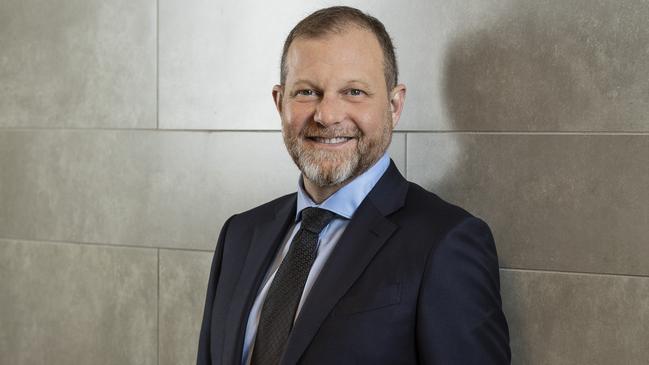Litigation funder Omni Bridgeway plans for class action growth, calls for regulation
Downturns are good for business at ASX-listed litigation funder Omni Bridgeway, which is pushing on with its US foray, with any economic slowdown to feed into the company’s growth plans.

Downturns are good for business at ASX-listed litigation funder Omni Bridgeway, which is pushing on with its US foray, with any economic slowdown to feed into the company’s growth plans.
Omni Bridgeway, a funder of class actions and corporation litigation, is preparing to hold its regional conference and annual meeting on Wednesday.
Omni Bridgeway chief executive Andrew Saker, who flew out from his base in New York, said while the company’s past lay in Australia, its growth was focused in the northern hemisphere.
The company now generates much of its income in its northern hemisphere markets, reporting total gross income of $221m in the last financial year. This was down on the $286.4m reported in the 2021 financial year, but several cases funded by the company are on the horizon and the group’s plans to secure non-balance sheet funding for its operations may soon pay dividends.
“It’s definitely grown from Australia, but it’s a global business. We now generate most of our incomes in the northern hemisphere,” Mr Saker said.
Australia represents only 12 per cent of the total litigation book for Omni Bridgeway.
Mr Saker, who started at Omni Bridgeway in 2015, has been key to the push from the business to shift the funding burden for many cases off its balance sheet and secure public equity investments in matters. The company launched its first fundraising in 2016 and deployed the $US190m (280m) raised within 18 months. This has since grown, with almost $3bn in funds under management today.
Mr Saker said inflation and higher interest rates were not a concern for the business, with a relatively slim $150m in debt on the books. “In terms of private equity, it would be presented as an opportunity for them to spread their risk and get higher returns through our fund structures,” he said.
Mr Saker said Omni Bridgeway was a counter-cyclic operator and would benefit from an economic downturn as more companies missed earnings guidance. “When there is an economic downturn, there’s an increased demand for non-recourse capital,” he said.
Mr Saker said the rise of more class action and litigation funders showed the need for regulatory intervention to legitimise funders and secure class members. “We’re asking, as we did for the previous government, for appropriate regulation of litigation funding to ensure capital adequacy in particular, and to thereby give comfort to clients that a claim can be pursued through to the end and to the defendant that if you lose, you can actually pay their costs,” he said.
Mr Saker said a licensing regime and register of funders would improve clarity.
“I think (the Australian Securities and Investments Commission) are probably the right repository for that type of information, they are the regulator for other licensed operators, whether it’s AFSLs or anything else,” he said.






